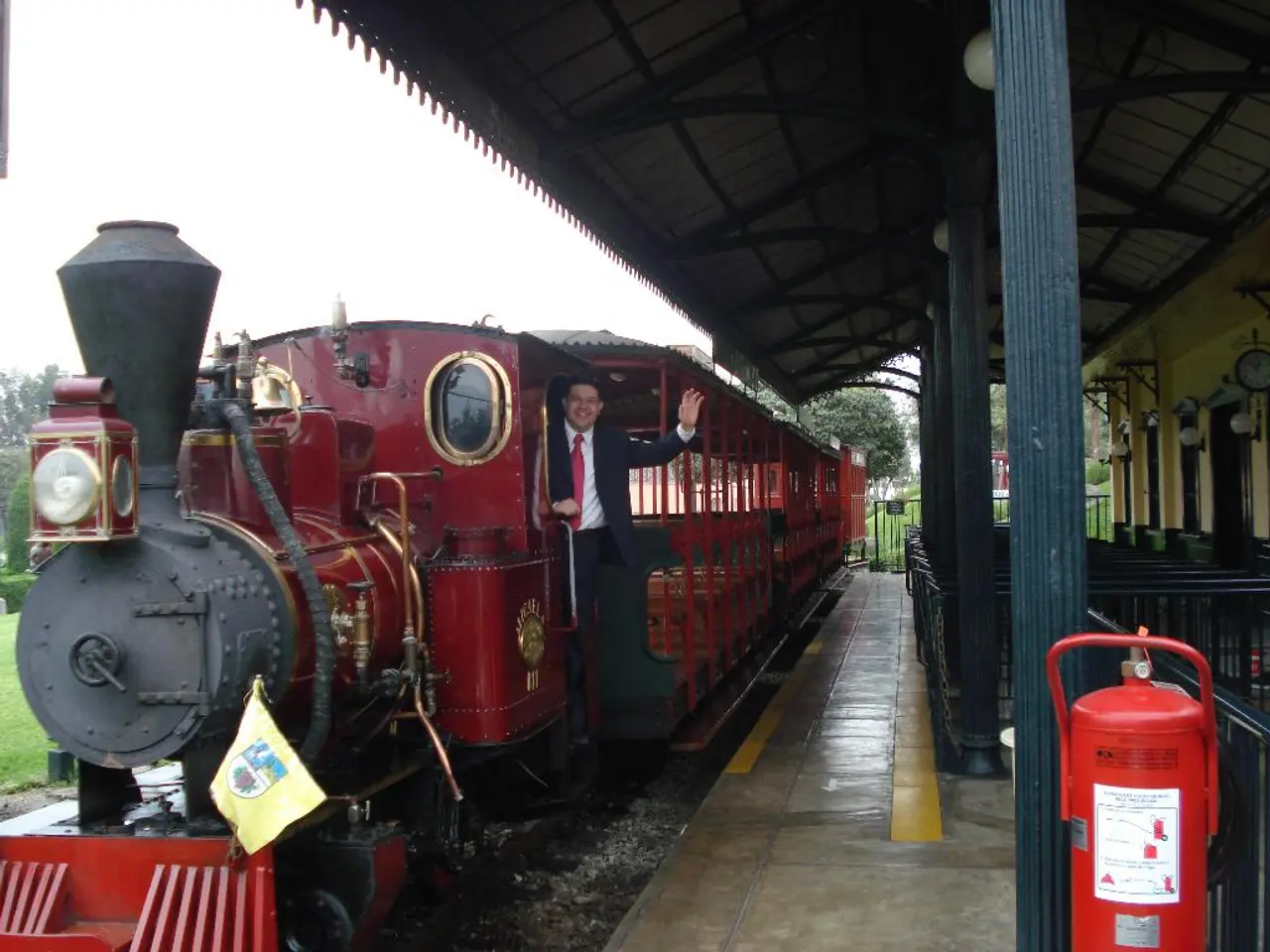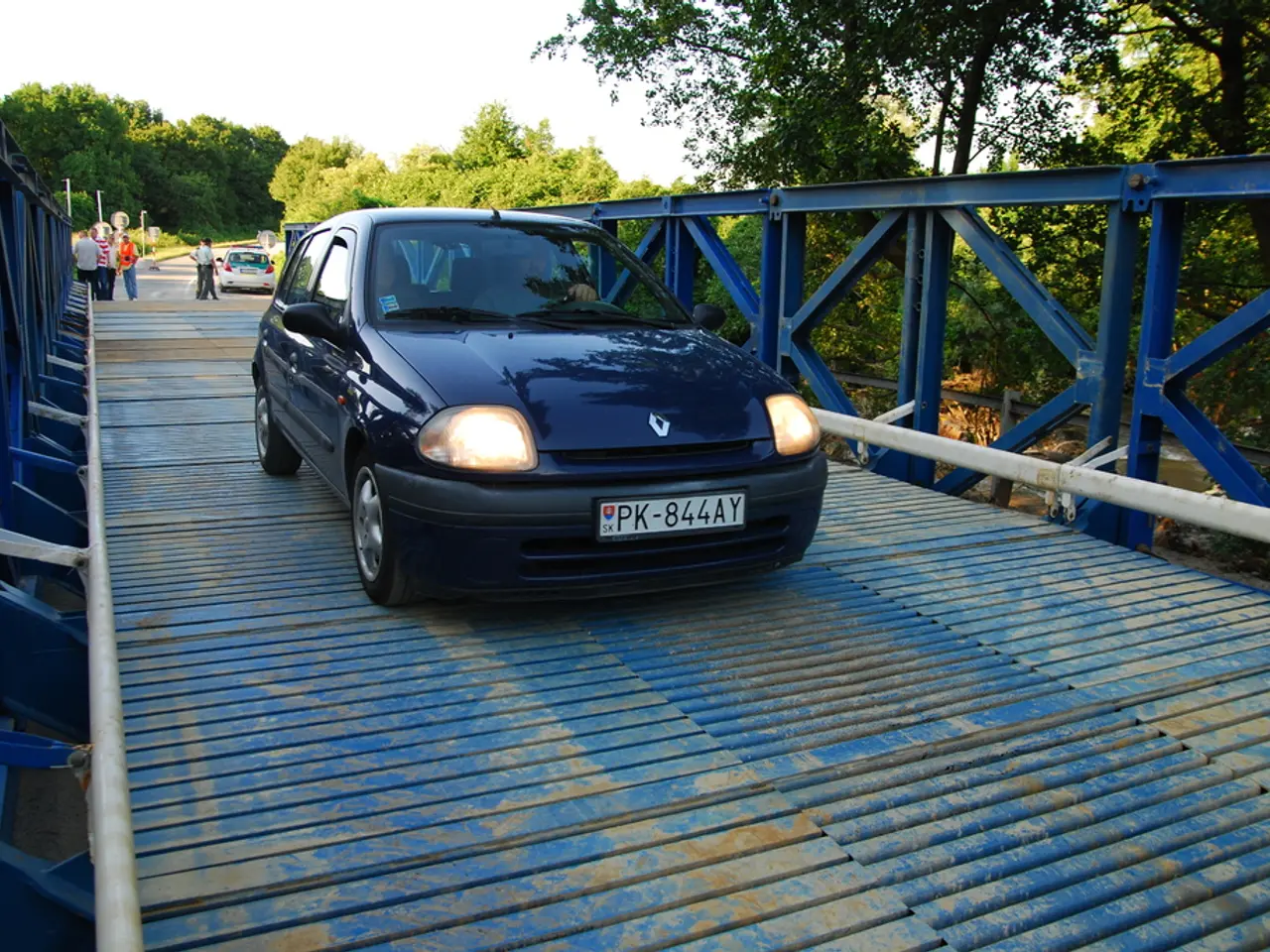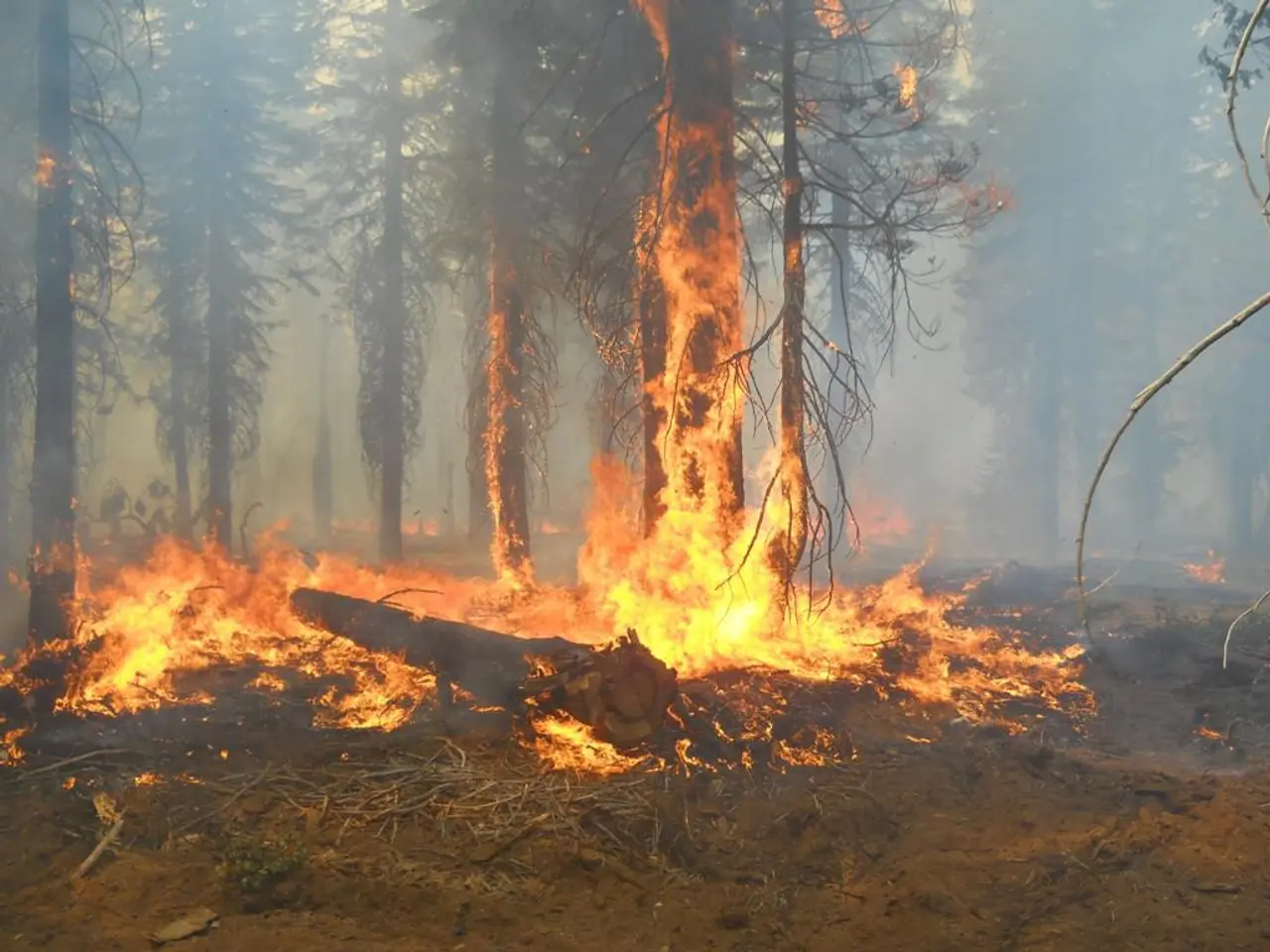Deadly train crash occurs due to adverse weather conditions in Baden-Württemberg
In a sad turn of events, a regional express train derailed near Sigmaringen, Germany, on July 27th, around 6 pm. The accident resulted in the tragic loss of life, with the 32-year-old train driver, a 36-year-old trainee, and a 70-year-old man losing their lives. Approximately 41 people were injured, with some suffering serious injuries.
Our thoughts are with the families and loved ones of those affected by this devastating incident.
The railway line connecting Sigmaringen and Ulm has been closed following the accident, and a replacement bus service has been set up for the affected route.
Train travel, known for its eco-friendly and comfortable nature, is a popular choice, especially during the holiday season. It offers a relaxed way to enjoy the journey and watch the scenery pass by. However, this incident serves as a tragic reminder of the potential dangers that can arise during severe weather conditions.
Railway companies worldwide implement safety measures to minimise weather-related risks. In Germany, for instance, Deutsche Bahn operates a "natural dangers management" unit. They monitor tree health adjacent to tracks to reduce the risk of damage or debris on tracks.
When rainfall or weather conditions exceed safe thresholds, train services may be suspended or cancelled to prevent potential derailments or accidents due to flooding, waterlogging, or landslides affecting the tracks. Rail operators also maintain monitoring systems for natural dangers such as landslides, storms, and heavy precipitation, and have specialized units to manage risks from storms, heatwaves, and heavy rain.
In the event of hazards like fallen trees or debris, specialized response teams with equipment (e.g., chainsaws) are on standby to clear obstructions promptly. Speed restrictions may also be enforced in storm-affected areas to prevent accidents.
Authorities often investigate and maintain infrastructure to identify vulnerabilities and reinforce safety, including plans and funds for upgrading railway infrastructure to withstand extreme weather and climate change impacts. During severe weather watches or warnings, transport agencies advise travelers to plan ahead, allow extra travel time, and stay updated with real-time information on service changes or cancellations.
These measures aim to detect, prevent, and mitigate weather-related risks to train travel safety, prioritizing passenger welfare by sometimes halting services proactively when conditions are unsafe.
The exact cause of the landslide that led to the derailment is yet to be determined and is currently under investigation. We will continue to provide updates as more information becomes available.
In the meantime, we urge everyone to stay safe and follow safety guidelines during severe weather conditions. Let us remember those who lost their lives in this tragic incident and extend our support to their families and loved ones.
- The tragic train derailment near Sigmaringen, Germany, serves as a stark reminder of the importance of weather-forecasting and general-news reporting in minimizing weather-related risks during transportation.
- In light of the derailment, it's essential for railway companies to intensify their focus on implementing safety measures and monitoring weather conditions to prevent accidents and keep travelers safe.








